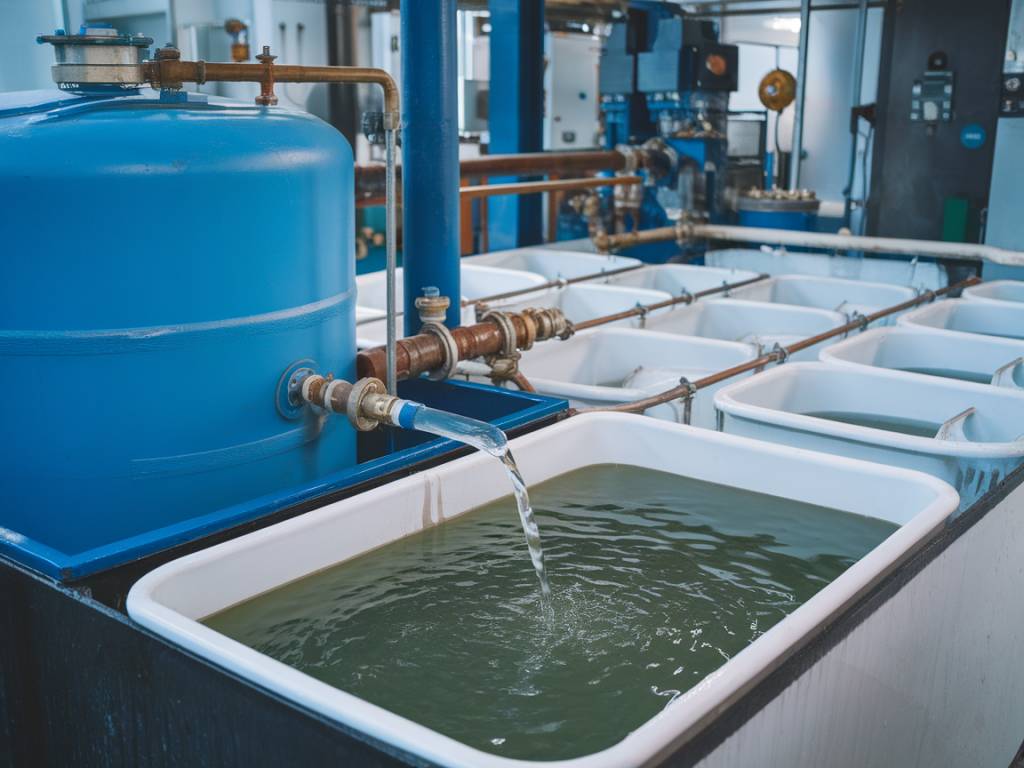Understanding the Connection: Water Recycling and Corporate Sustainability
In today’s fast-paced business world, sustainability is no longer a buzzword—it’s a core strategy. Companies across the globe are adopting sustainable practices, not just for the planet, but for their long-term viability. But have you ever wondered how water recycling systems can play a pivotal role in this narrative? Let’s dive into the refreshing world of water recycling and uncover how it can transform corporate sustainability strategies.
Why Water Matters in Corporate Sustainability
Water is our most precious resource, underpinning every facet of life. In the corporate setting, water usage might seem trivial compared to other resources, but it hides immense potential. Water recycling systems allow businesses to significantly reduce their water footprint, leading to cost savings and a smaller environmental impact. And who doesn’t love efficiency that does good?
The Mechanics of Water Recycling Systems
The first question on everyone’s mind is often, « How do these systems work? » In essence, water recycling involves treating used water so it can be used again—think of it as giving water a second life. The systems can range from simple graywater systems, which reuse water from sinks and showers, to more complex treatment facilities that can purify wastewater to near-drinking quality. The catch-all is adaptability; these systems can scale to fit businesses of all sizes.
Implementing Water Recycling: A Corporate Narrative
Let’s paint a picture with an anecdote—shall we? Picture a bustling tech company nestled in an urban jungle, their office building shimmering with glass facade and an emblem of modern architecture. They decide to install a water recycling system. What seemed daunting at first was, in fact, a leap towards sustainability. The building’s water consumption dwindled, and alongside cost reductions, employee morale surged. After all, who doesn’t enjoy working for an environmentally conscious company?
Benefits Beyond the Bottom Line
Implementing water recycling systems comes with a myriad of benefits:
- Environmental Impact: Reduction in freshwater consumption and less strain on local water supplies.
- Cost Efficiency: Lower water bills and potential rebates or incentives from local governments.
- Regulatory Compliance: Staying ahead of increasingly stringent environmental regulations.
- Corporate Image: Boosted reputation among consumers and investors focused on sustainability.
Isn’t it fascinating how a single initiative can ripple across so many facets of a business?
Overcoming Challenges: A Pragmatic Approach
No innovation is without its hurdles. The initial cost of setting up a water recycling system can be significant, and there might be technical challenges along the way. However, with careful planning and the right partners, these challenges are surmountable. Companies might start small, targeting specific areas of their operations and expanding as they see success. Like any good journey, it starts with a single, well-planned step.
Policy Implications and Support
Any discussion about sustainability isn’t complete without touching on public policy. Governments worldwide are recognizing the critical role of businesses in addressing water scarcity. Support comes in the form of tax incentives, grants, and policy modifications. Are businesses ready to leverage these opportunities to make a substantial impact?
The Future of Homegrown Corporate Sustainability
Moving forward, the goal is to embed water recycling deeper into corporate DNA. The idea is simple: as water becomes a recycled resource, sustainability becomes a seamless part of core operations. This shift not only secures resources for the future but potentially inspires innovative solutions to other pressing environmental issues.
As companies navigate the waters of corporate responsibility, water recycling systems offer a beacon of hope—a tangible commitment to a sustainable future. With every drop saved, we turn the tide in favor of a healthier planet. A cleaner blue, a brighter green—who knew the potential lay within recycled waters?






More Stories
Corporate wellness programs: how to integrate health monitoring devices?
What corporate health technologies can boost employee well-being?
Workplace health: what are the benefits of using recycled water?